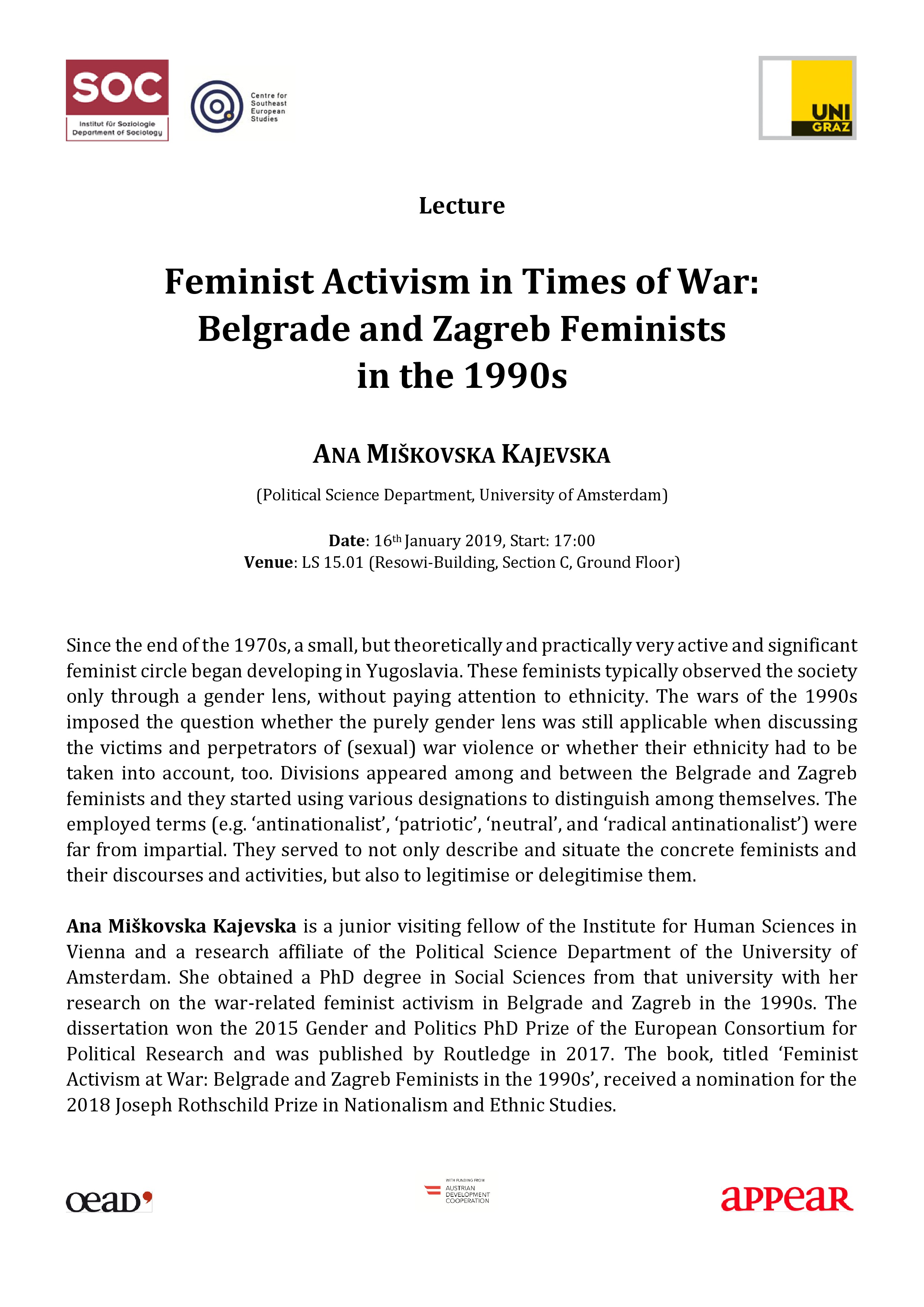Since the end of the 1970s, a small, but theoretically and practically very active and significant feminist circle began developing in Yugoslavia. These feminists typically observed the society only through a gender lens, without paying attention to ethnicity. The wars of the 1990s imposed the question whether the purely gender lens was still applicable when discussing the victims and perpetrators of (sexual) war violence or whether their ethnicity had to be taken into account, too. Divisions appeared among and between the Belgrade and Zagreb feminists and they started using various designations to distinguish among themselves. The employed terms (e.g. ‘antinationalist’, ‘patriotic’, ‘neutral’, and ‘radical antinationalist’) were far from impartial. They served to not only describe and situate the concrete feminists and their discourses and activities, but also to legitimise or delegitimise them.
Ana Miškovska Kajevska is a junior visiting fellow of the Institute for Human Sciences in Vienna and a research affiliate of the Political Science Department of the University of Amsterdam. She obtained a PhD degree in Social Sciences from that university with her research on the war-related feminist activism in Belgrade and Zagreb in the 1990s. The dissertation won the 2015 Gender and Politics PhD Prize of the European Consortium for Political Research and was published by Routledge in 2017. The book, titled ‘Feminist Activism at War: Belgrade and Zagreb Feminists in the 1990s’, received a nomination for the 2018 Joseph Rothschild Prize in Nationalism and Ethnic Studies.
